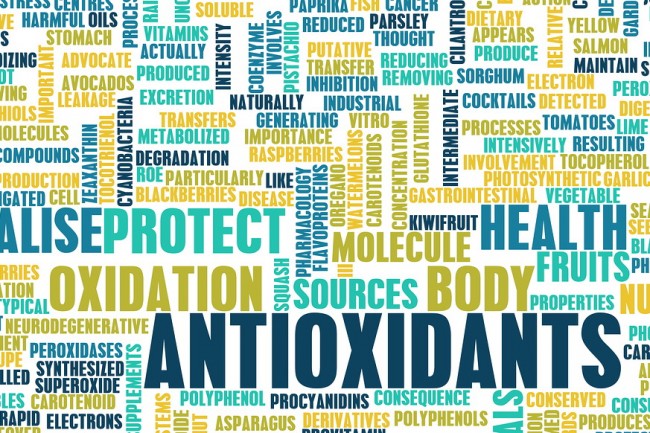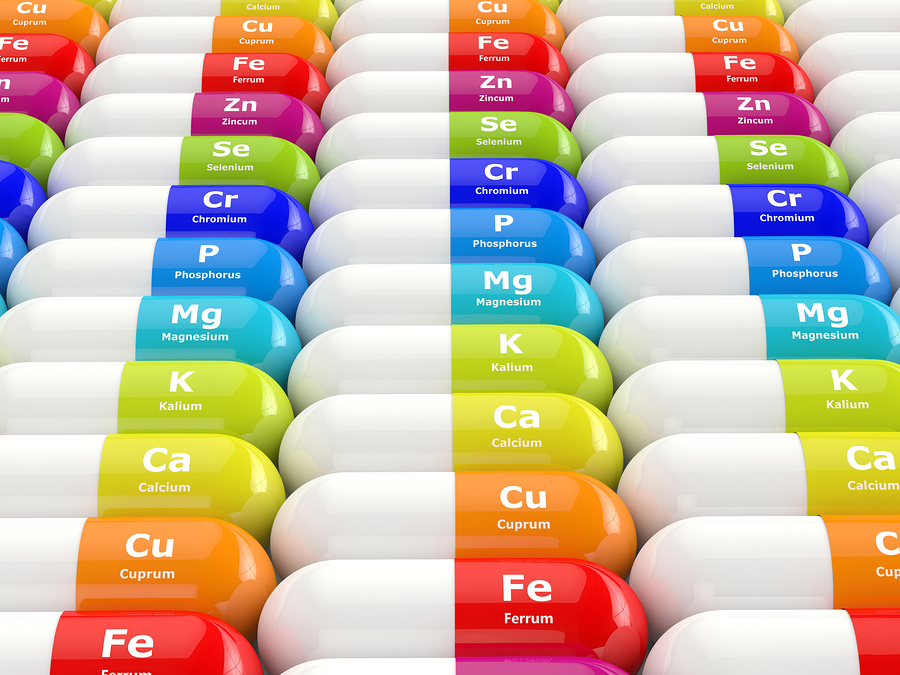- Make It Yourself Lavender Heart-Shaped Bath Bombs!
- 20 Things You Never Knew About “Down There”
- 12 Best Foods For Those Suffering From Arthritis Pain
- 12 Personal Hygiene Mistakes Almost Everyone Makes (Mom Never Told You About #4!)
- 15 Medicinal Plants And Herbs From The Cherokee People
- 12 Mind-Blowing Benefits Of Drinking Coconut Water During Pregnancy
- 12 Outstanding Winter Foods That Won’t Fatten You Up Like A Christmas Turkey
Antioxidants – 10 Myths Everyone Should Know

Photo credit: bigstock.com
When you shop at the grocery store, it seems that so many products today boast that they contain antioxidants. With our vision of being healthy, many people buy the products because of these claims. The problem is that some of the products have come under fire and were sued because of the claims they have made on their labels.
In addition, many medical professionals state that you have to watch how you consume antioxidants, or they will affect your health. Here are all of the things you thought were true about antioxidants. Keep these in mind the next time you read up about these powerful nutrients. There are 10 myths about antioxidants you thought were true.
1. All antioxidants are made up from vitamins
If you always thought that all antioxidants come from vitamins think again. There are thousands of antioxidants available but some of them are enzymes and others come from minerals. The one thing all antioxidants share is that they are able to cease the action initiated by free radicals. Free radicals are chemical pieces that are not stable and can create problems with the healthy parts of the good cells in your body. The unsafe chain reaction that can result could actually cause heart problems, Parkinson’s disease, Alzheimer’s, and cancer.
2. Berries and pomegranates are considered super fruits
Even though berries and pomegranates are powerful fruits, it has been proven that people who consume a variety of fruits and vegetables work together and result in a healthy compound. Don’t limit yourself to just these two foods.
3. If you take antioxidants make sure you take even more
This is the perfect way to show you that in some things a little bit can be good, but too much is not better. It can make things worse. Stay away from the megadoses of antioxidants as they have more than you need on a daily basis. If you take too many of these megadoses, they will become pro-oxiants and they will actually make more of the free radicals which will certainly hurt those who smoke or drink.
Continue to Page 2

Photo credit: bigstockphoto.com
4. In addition to the antioxidants, you will need supplements
This is not necessarily true. Researchers suggest that instead of looking to supplements, you should add specific foods to your diet instead because the supplements haven’t had very impressive results, some even causing people more harm than good. One clinical study showed that those receiving 200 microgram supplements of selenium each day were more susceptible to another bout of nonmelanoma skin cancer if they had suffered from it before. Another study showed that participants who added selenium, or vitamin E, to their diets had a higher chance of getting prostate cancer by 17 percent over the next seven years.
5. All of the antioxidants do the same thing
Even though you may think that all antioxidants have been created equally, that is not the truth. There are different antioxidants that are effective on freeing special free radicals. One example of this is that vitamin C is able to recycle vitamin E. When vitamin E frees the free radical. the other vitamin switches E back to an antioxidant shape so it is able to take on extra free radicals.
6. If it lists antioxidants on the package, it will do wonders for your health
Some companies list their antioxidant properties on their packaging to get your attention. Just because they are listed on the package does not necessarily mean they are healthy for you. It was found that while some companies list their antioxidant claims, their product also has extra fat and sugar. You have a better chance of being healthy by going for more natural foods that have vitamin E and zinc such as dry-roasted almonds and lean beef.
7. It’s important to kill all the free radicals
While antioxidants are important in killing free radicals, they are not always the bad guys, but rather a part of the oxidation process that comes from the basic metabolism. Researchers agree they are important and help the defenses of the body. But having an abundance of free radicals can be a problem as well. At times, your regular antioxidant protection can become overwhelmed. There always needs to be a good amount of antioxidants available to take on the extra free radicals.
Continue to Page 3

Photo credit: bigstockphoto.com
8. Every antioxidant is derived from fruits and vegetables
The answer here is no. It is recognized that the whole plant kingdom is full of antioxidants, but that also includes seeds, grains, beans, and nuts. Plants in general have antioxidants so they don’t have to worry about UV rays or predators. Make sure you do not count on refined grains as your source because they have lost most of their antioxidant benefits. Steer towards eggs, meat, and dairy products.
9. All antioxidant foods that are fortified are good for you
This can be very misleading. When a product such as Cherry 7-Up is advertising its antioxidant benefits, it is only because it has a very small dose of vitamin E. Make sure you read the labels on what claims to be fortified foods to make sure that you really are receiving foods that will give you the benefits of antioxidants.
READ ALSO: 10 Common Food Myths For People With Diabetes
10. Exercising and adding supplements to your diet will make you in top shape
This seems like it would make sense but it doesn’t really work this way. When you work out, your body will begin to oxidize more and produce extra free radicals which are perfectly fine. Many people will opt for more antioxidants to offset this, but when you take more antioxidants after you exercise you will ruin the benefits you receive from your workout. A study from Britain found that a group of runners who added vitamin C supplements of 1,000 mg each day actually had a drop in muscle strength. It is suggested that instead of adding supplements you find whole foods instead. Again, sometimes too much of a good thing does not make it better.
References:
































